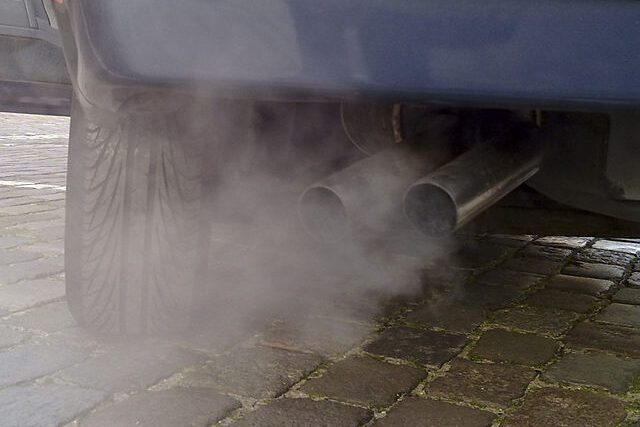
Air pollution is accelerating osteoporosis in postmenopausal women, according to a recent study. Researchers have discovered that air pollution accounts for a doubling of the speed of bone loss in the US, where around 10 million people are thought to have osteoporosis, 80% of whom are women. The condition weakens bones and causes more than 2 million fractures annually in the US, with a cost of over $20bn (£16.9bn). In the UK, osteoporosis affects 3.8 million people, and the resulting fractures account for around 2% of total healthcare spending. Small changes in the progress of the disease or the number of resulting bone fractures could therefore have a very large impact on healthcare systems and on the quality of life for many people.
The study was carried out by researchers from Columbia University’s Mailman School of Public Health, who scanned the bones of more than 9,000 women living in four different parts of the US. Each had a bone scan three times over a six-year period that was compared with the air they breathed. The team also found that particle pollution increased the number of incidents of people being taken to hospital with fractures by 8% in their study group.
Importantly, these studies show effects at air pollution concentrations that are well below the current limits in the US and Europe and well below the UK government’s proposed limits for 2040. Dr Diddier Prada, from the US study team, said: “Further action is needed to reduce air pollution from diesel vehicles and wider fossil fuel use to protect public health. These may result in enormous reductions in hospitalisation, costs, and even mortality.”
The US researchers found that the lumbar spine was most susceptible to air pollution-induced bone loss, especially from nitrogen oxides. These are a group of pollutants including nitrogen dioxide that breaches legal limits along many main roads in the UK and across Europe. These breaches have persisted since the start of the century, exposing many people to high concentrations of nitrogen dioxide. This comes mainly from traffic, especially the large numbers of diesel vehicles that were manufactured to pass exhaust tests but produced much more pollution when used on our roads. These are the target of policies such as London’s ultra low emission zone and the clean air zones elsewhere.
In the UK, a recent study of people living with more than one chronic illness found osteoporosis among the conditions associated with air pollution, and a further study found links between air pollution, lower bone density, and increased fractures. Research on the linkage between bone health and air pollution is an emerging field, including studies on people in rural China, but a consistent research approach is yet to emerge, making it hard to compare findings.
Dr Richard Abel from the faculty of medicine at Imperial College London, who was not involved in the US studies, said: “These studies reported that living in areas with high air pollution for just five years might be long enough to lower bone mineral density at the hip. This is a worrying finding because low bone mineral density is the biggest risk factor for hip fractures, which kill around one in three people and disable one in three. The next important research step is to discover a physiological mechanism to confirm whether exposure to air pollution really does damage bone health.”
The study’s findings are a cause for concern, as the world’s population continues to age due to increased life expectancy and declining birth rates. The researchers have called for further action to reduce air pollution, particularly from diesel vehicles and wider fossil fuel use. If successful, this could result in enormous reductions in hospitalisation, costs, and even mortality. In addition, the findings highlight the need for further research to understand the mechanisms behind the relationship between air pollution and bone health, and to establish consistent research approaches to make it easier to compare findings from different studies.
——————————————————————————
At Natural World Fund, we are passionate about stopping the decline in our wildlife.
The declines in our wildlife is shocking and frightening. Without much more support, many of the animals we know and love will continue in their declines towards extinction.
When you help to restore a patch of degraded land through rewilding to forests, meadows, or wetlands, you have a massive impact on the biodiversity at a local level. You give animals a home and food that they otherwise would not have had, and it has a positive snowball effect for the food chain.
We are convinced that this is much better for the UK than growing lots of fast-growing coniferous trees, solely to remove carbon, that don’t actually help our animals to thrive.
This is why we stand for restoring nature in the UK through responsible rewilding. For us, it is the right thing to do. Let’s do what’s right for nature!
Support our work today at https://naturalworldfund.com/ and join in the solution!

